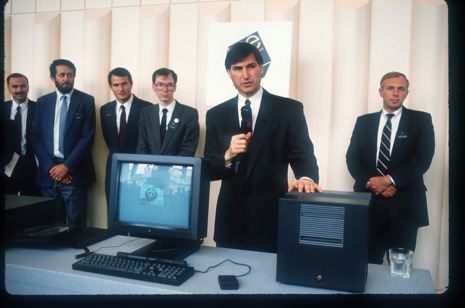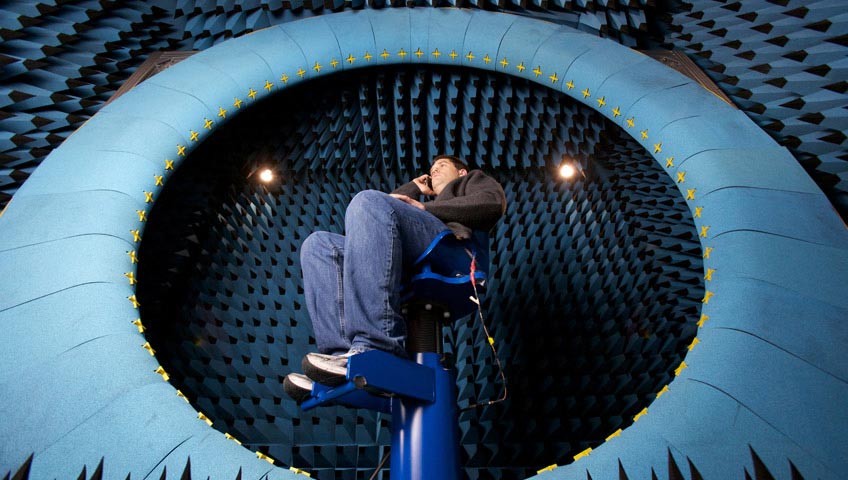Chapter 1
We start off with some comments by the author – Thomas L. Friedman, on why he decided to become an explanatory journalist.

Many, in today’s world, believe that the more complicated they sound and behave, the more impressive they are. Breaking things down into a simple language, which can be understood and, perhaps applied, by the readers, if useful, is a more important task since most people aren’t deeply involved in academia: enter the Orwells, Gladwells and Friedmans of the world.
While driving a car at high speed might be thrilling, it is not what we would like to get habituated to. This is because we also have the tendency to keep ourselves safe and speed guarantees anything but that. Similarly, knowledge and technology may be jumping in leaps and bounds, but ethical challenges that come from new technology has a lagging day in the court.
This book explains how we are living in a time of great sensitivity and responsibility. It is perhaps one of the most memorable eras (seems biase) in the history of mankind, where we have knowledge and technology on one side, but are so busy in that, that we have no time to understand its impact on the world and the society. And that is a major cause for concern.

In a world where everyone wants to appear “busy” having the time to just “pause” and “reflect” is a luxury that many refuse to avail, even though it is so readily available. The problem lies in the fact that, if it is hard to get your time and to have your attention for a while, then you become all the more desirable. This idea is what keeps so many of us from making ourselves readily available for out friends and family members. We are always “busy”.
Friedman narrates the importance of pausing in our daily lives and reflect on our ideas and principles and knowledge. It is only when we stop and think, that we discover our true calling and finally start growing. Famous personalities over the years have emphasized the importance of this, but sadly, it is forgotten by every day people.
It is when you sit down quietly, maybe exercise or are in the thinking mode, that you find the solutions to your problems, come up with ideas and even understand certain situations that, otherwise, you might have failed to.
The chapter explains the reason behind the title of this book. Friedman, a journalist, was a famous interviewer, interviewing people from different spheres of life, and spent several minutes waiting for them while they arrived late for an interview. It is then that he realized he could use these few minutes waiting for them, either cribbing and getting engrossed in social media, or to use it for pausing and reflecting on the different aspects of his personal and professional life. This helped him gain clarity and focus and even peace. That is why, when his guests arrive late, his response is , “Thank you for being late.”
The whole idea for this book happened when he had a chance encounter with a parking attendant who happened to recognize him and get his attention. Upon further meetings, they became closer, and the author was surprised to know that the guy actually had his own blog in which he discussed the economic and political issues raging in his country of origin – Ethiopia.
He worked as a parking attendant during the daytime and a blogger at night. He was an intelligent man who didn’t keep only keep track of his blog statistics but also wanted to improve his style of writing. Mr. Friedman helped him as much as he could, giving him useful tips and insights. They were complete strangers who were now colleagues. The attendant, Bojia, forced him to figure out the difference between reporting and opinion writing. It is because he had decided to “pause” for Bojia, that the author looked at his work in a whole new light. While Bojia got his principles for the blog, he got the idea for this book.
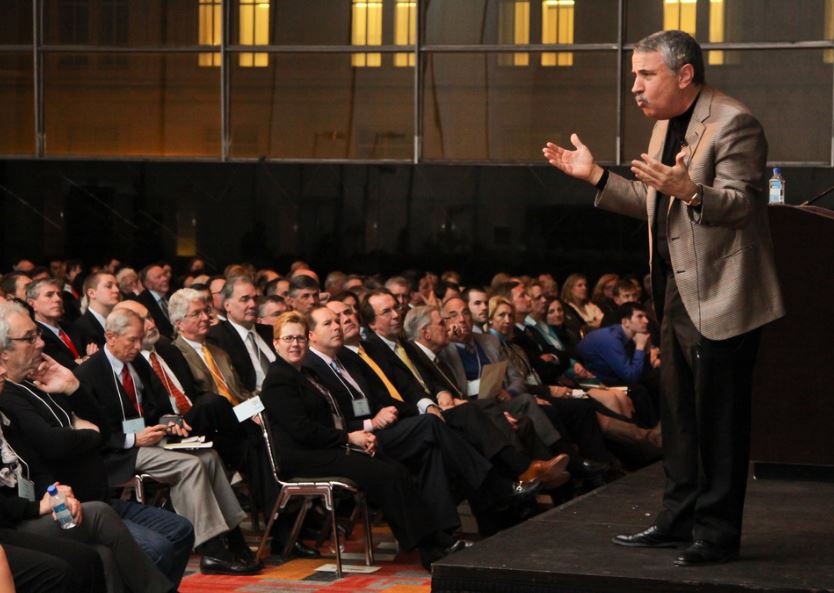
This book is all about how technology, globalization and climate change are having a huge impact on the world and its people. It impacts everything – the way we live, the cars we drive, our responses to different situations – everything! However, this all started in the auspicious year of 2007.
Chapter 2
The year 2007 will hold significant importance for many years to come. This is the year in which Steve Jobs introduced the iPhone to the world – a smartphone that could be the best music player, the best phone and the best way to connect to the Internet.
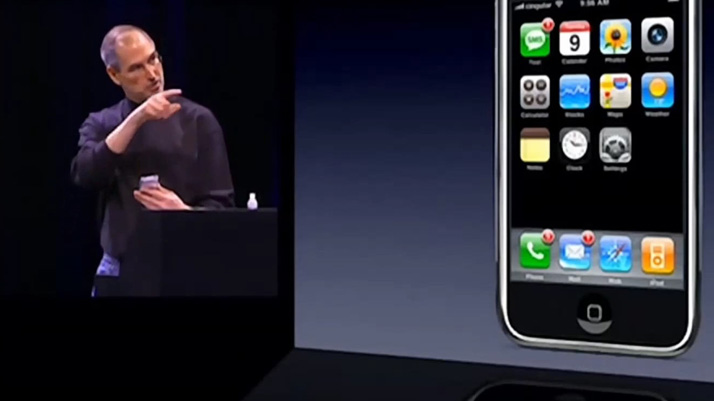
Coming up with this device almost drained the company of all its resources, but, its introduction was worth all the trouble that Apple had gone through. The results were phenomenal!
Apart from Apple, several innumerable discoveries were taking place simultaneously, and new companies came into existence. Global giants of the world today, like Facebook, Twitter, the introduction of the Android and several other historical inventions were coming into existence.
Famous CEOs who had quit their jobs, like Michael Dell, returned to their jobs as they realized that the year 2007 was not an ordinary one, but one in which technology was developing like they had never seen before and missing out on such an opportunity would be nothing but foolishness.
Developments were taking place in manufacturing processors, operating softwares and improving storage capacity for the huge volumes of data that were now easily available and when these inter-related things develop, they create a platform for the improvement of mankind as a whole.
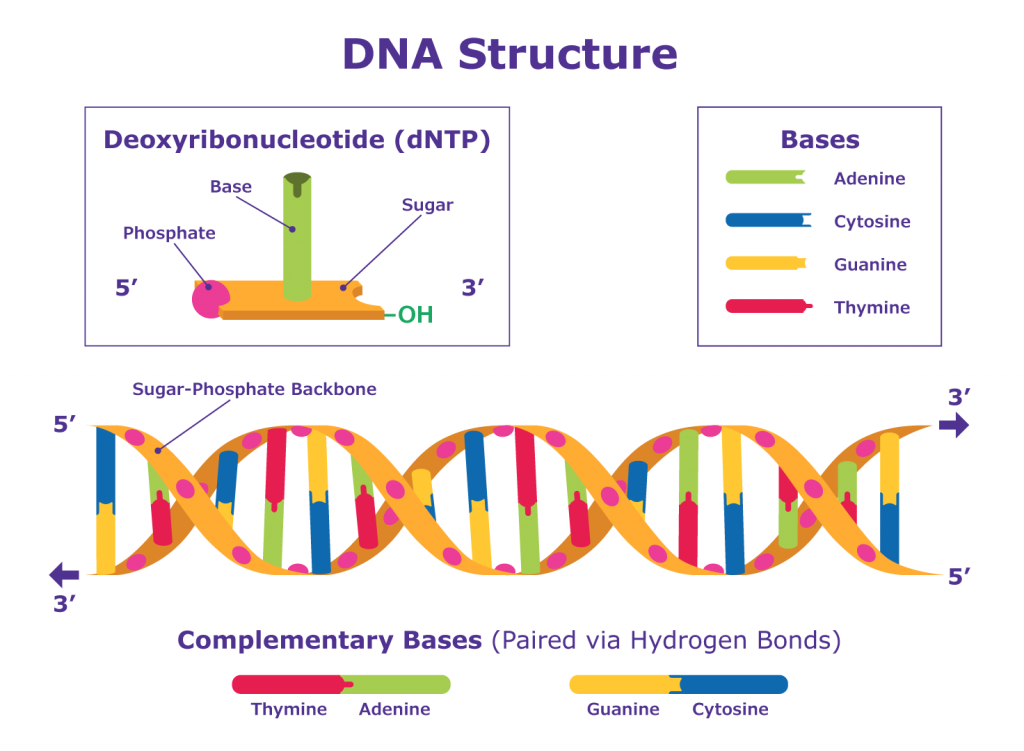
Thanks to these and several other developments, costs were greatly reduced. For example, DNA sequencing that could cost a $100 million in 2001, could now happen at $1,000! It was that low. While costs came down magnanimously, developments and growth happened at the same pace, but in the upward direction. The rate of change was increasing, and the pace of that acceleration was increasing as well, leading to growth in exponential forms showing the world how huge exponential growth could be and the miraculous numbers that they could lead to!
With an unbelievable increase in easy access to finance, credit and global flow of commerce, there is an improved connection between schools, colleges, offices, markets and the media. With the development of technology, globalization and climate change, these spheres are increasingly becoming more interdependent on each other, and while they are helping improve the human and biophysical landscape, they are creating several problems as well. Surprisingly, one must note, that again, these fields are the ones who can find new solutions to new problems that they are creating in the first place.
The world is moving at a higher pace of change, and the rate of change is also accelerating. The are more creatives chasing their dreams, although creating viable quality is also challenging.When the pace of change is difficult to keep up with, the world suffers, what is known as a dislocation. Dislocation happens when the change is happening at such a pace that the rest of the world cannot keep up with it. Things are changing rapidly, and our safety nets cannot keep up with them. This is the challenge that the governments all over the world are facing at the moment.
If you were to make a graph with time being the X axis and the rate of change being the Y axis, then the curve representing this combination over the centuries would gradually go upwards and then soar upwards, until finally, it shot off in the air. This graph basically explains how initially, the technology could previously take a century to have an impact on the lives of the people.
However, the developments that happened subsequently could stand on the shoulders of its predecessors and take a faster leap. Today, it can take only 5 to 7 years for a new invention to affect mankind on this planet and that too in every corner of the world.

On the same graph, one can make another curve called the ‘competing curve’ to have a better understanding of the pace at which technology is developing and the pace at which humans are adjusting to it. This curve is extremely incremental, with a positive slope. This curve shows us that humans have a good capacity and that is the fact that they can easily adapt themselves to the changing scenarios. However, we have reached that level today, where our capability to match on a moral basis is falling behind. And this is causing problems in the world that we live in.
That leaves us with two options. Either we can stop the growth of technology or improve our adaptability. The former is not a good idea as developing technology is only helping us combat several environmental and societal issue that are plaguing mankind. So the only option is to work on improving the rate at which we are adapting to the technological developments.
This chapter goes into the details of the developments that happened around 2007 and shows us the relationship between the rate at which technology develops and the pace at which that rate is accelerating and how humans are adapting to these changes.
Chapter 3
The power of exponential growth is what this chapter takes a closer look at. If a number doubles, triples or even increases four times for many years, it will reach huge numbers that mankind had never even imagined. For example, if the power of microchips are doubled every two years, and this process goes on for fifty years, the results will be microchips that are far more efficient, powerful and even available at fairly lower costs compared to the microchips that were made initially.
A computer has five important parts – 1. The circuits, 2. The memory centers, 3. The communication networks, 4. The software installed and 5. The sensors like cameras and speakers that further enhance the performance of computers. This chapter explains how the development in each of these five components have lead to this situation where human beings cannot adapt themselves to the pace at which changes are being implemented in the world of technology.
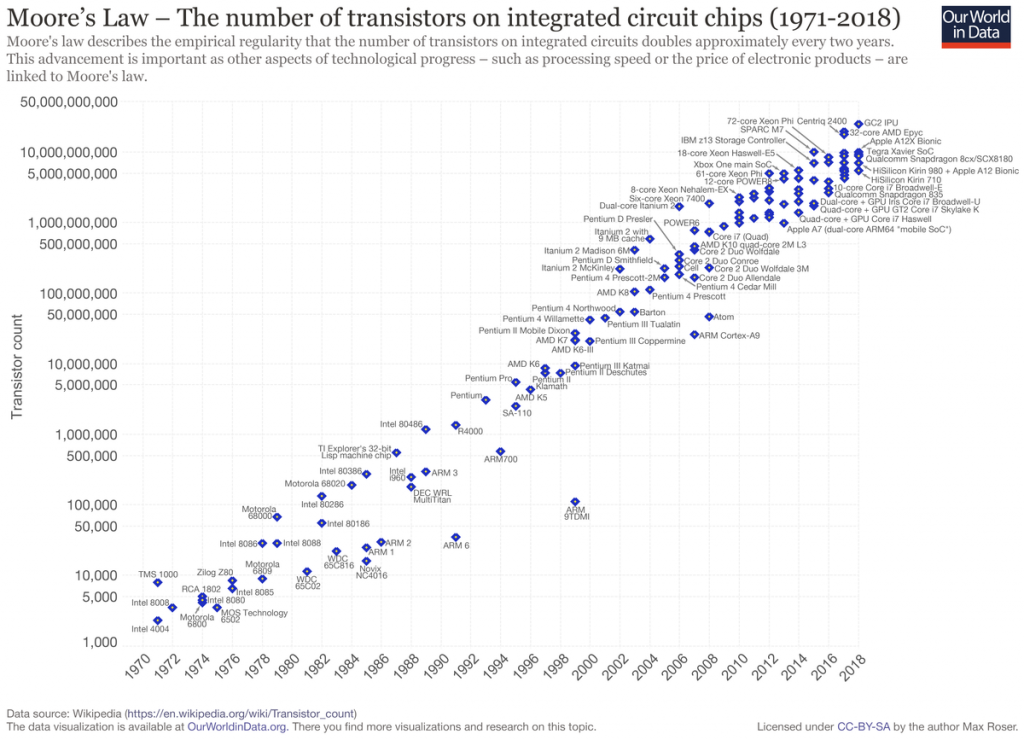
Starting with microchips, they are small engines on a chip that make computers, the miraculous machines that they are. Over the years, these microchips have become smaller and smaller and at the same time, more efficient. Every time, engineers would wonder how they could make the next level microchips that would go beyond the realm of imagination, they would hear a lot of opinions.
However, they succeeded in achieving their dreams, in spite of how demotivating the opinions around them could be. Surprisingly, these microchips were getting smaller and smaller, all the more powerful and available at more affordable prices. The world was witnessing exponential growth and whatever was predicted, was happening, indeed.
Next in line are the sensors – the same sensors that police use to detect the speed of moving vehicles and your fitness bands use them to detect your pulse rate and breathing and sleeping patterns which give you a better idea of the number of calories burned.
In fact, it is these sensors that today, help the garbage man know when a garbage can is filled and needs to be cleaned! Whether complicated, or simple, it is the sensors that have made life as easy as it is today. Sensors may be defined as a device that can take in inputs from the physical world and use it to give results to the human beings that can be read and interpreted for further working on it. Down the years, just like the microchips, even sensors have become increasingly powerful and sensitive and have simultaneously gone down in prices. That is why they can be installed in things as small as fitness bands that help you lead a healthy and fit life.
The impact that these sensors have in today’s world can not even be imagines. Their results can be used to shape the future of this planet. Instead of waiting for things to get ruined and then working on changing or improving it, sensors help us detect patterns before that damage occurs so that necessary steps can be taken to prevent and improve things instead.
Now, moving over to storage or memory. It is true that the sensors have generated huge amounts of valuable data. However, storing that data would have been a major problem had there not been revolutionary innovations when it came down to storage. The data that is generated in huge companies like UPS alone, only in the United States is insane. If one gets down to the basic calculations, it would be crazy! Developments in storage have enabled us to store data temporarily and permanently.
And again, with further improvements, efficiency increased, and prices dipped. The trend was maintained. However, along with the hardware changes, software developments also happened that helped connect several computers as one and handled all their data as if it was just happening through one desktop. The chapter explains how the company called Hadoop helped bring about these changes and received tremendous help from Google in the process.
Talking about software would be incomplete without mentioning the important contribution made by Bill Gates, through Microsoft that opened the eyes of the world to the huge advantages that one common software could offer. Instead of having manufacturers of desktops creating their own software, having a common software on all of these different makes was more beneficial. By creating more valuable programs that could run on this common software, the world was going to become a better place.
Software developments have helped us to solve major problems without even knowing the underlying theories of the basic problem. Be it searching for your photographs or hailing a cab – the technique you use today is strikingly different from what you employed a decade ago. The chapter portrays how big companies like GitHub have played an important role in developing software and making it reach levels that were previously impossible.
The last part of this chapter reminds the readers that while the other four components have witnessed the tremendous speed of development, the large scale that they have reached today wouldn’t have been possible without faster connectivity. The growth of connectivity has also closely followed the Moore’s Law. Development and innovation have been taking place tirelessly in this field, and today the citizens enjoy faster connectivity that takes less than a fraction of a second to establish itself.
The chapter also talks about the introduction of cloud computing, or storing data and other software applications over the Internet, so that we can access this information from any corner of the world as long as we have access stop a device that uses the Internet. Since this invention is so important, the author decides not to name it a Cloud, but a supernova, something he discusses in more detail in the next chapter.
Chapter 4
This chapter begins by talking about artificial human intelligence. There was a time when all the instructions had to be fed into the machine and then it would go about completing the task assigned to it.
However, with technology developing at the pace that it currently is, machines possess the five sense organs that humans do – sight, smell, hear, taste and feel. They can recognize voices and compare images to give better results and so on.
At the same time, all this wouldn’t have been possible without the cloud. It is using the cloud computing where almost everyone can access data that combines the knowledge and power of human thinking, knowledge of different fields and powerful principles that anyone can now use to power up a new business or work or work on a new idea.
While technology can be used for the good and help millions of people simultaneously, when it falls in the wrong hands, it can also be used to damage hundreds and thousands of lives as well.
Like everything else on this planet, there are two sides to this – it is creating several problems for mankind and the planet by changing several aspects of the biophysical world, however, it is this technology that is also helping us find solutions to these problems that are facing mankind like a never ending mountain, challenging humans to overcome it. Technology can be used to create problems as well as solve them.
It is through the cloud or the supernova that big multi nationals have now reached a point where they can conceive an idea, test it, make the necessary changes and come up with the new final product in just a week. However, earlier, as the author discovered while interviewing a director of the General Electric, Luana Iorio, that earlier, this process could take almost two weeks!
The cloud has made it possible to magnify and combine the strength and power of the human intelligence, creativity and the available resources of knowledge to make development and progress reach a stage that was thought to be impossible. Through cloud, the data available per second has increased rapidly while the cost of consuming data has decreased, enabling organizations to use unlimited amounts of data, at minimum cost. This has helped them to help come up with new products, ideas, and services that can help mankind and the planet.
During the year 2000 to 2007, the touch system gained momentum, enabling humans to do everything – from talking to searching the web – with just the touch of their fingers! And all this wouldn’t have been possible had the cloud not come into existence. The cloud is what combined all the resources and knowledge and created powerful software at great speed to help create the touch application systems.

Airbnb is one such multi-billion dollar company that wouldn’t have existed without the cloud. After all when you’re traveling, how do you know whether someone, residing in your destination city, would have a spare room to rent out to you? A few years ago, one would have thought that the idea was not only crazy, but also impossible.
However, yes, with the cloud now aiding development, ideas may be crazy, but impossible? No way! The best part is that, the creation od cloud computing didn’t just help bring new companies into existence, but also helped the existing ones compete with the new ones in a more efficient manner.
With the innovation of cloud, to come up with something new (and great) you don’t need excess money or even access to a metropolitan city. You only need useful information and all that is easily available to you as long as you have access to the internet, irrespective of your bank account statement and your enviable address in New York.
The chapter explains how a small family based out of a small village named Batman, used the supernova to create a new company called New Media Inc., that tracks down all the information, in real time and provides useful information to their respective customers.
Giving excuses like you don’t have the necessary resources to make your dream a reality is not an acceptable excuse anymore. If you’re not succeeding at making your dreams come true, it just means you are not working for it.
Chapter 5
Chapter number 5 is all about globalization, which the author refers to as the market. The main point of this chapter is to explain to the readers that just like technology, even globalization is accelerating at a rapid pace. Everything is almost now available in the digital form and, thanks to the cloud, these digital data can now be sent to anyone anywhere in the world, as long as there is an internet connection.
Initially, globalization referred to the exchange of goods, services, and finance at a global level. However, the term has become an extremely broad one and included the collaboration of humans and companies all over the world as well.
We just have to look around to give ourselves an idea as to how rapidly globalization has taken place. Whether you want more friends on Facebook, or wish yo fund an important campaign on Indigogo or even if you simply wish to transfer funds online, everything that humans could once possibly imagine, is possible. Not only live streaming of information, but videos can now be streamed live as well. This gives the people, far away from you, a chance to experience your circumstances themselves and they are assured of the authenticity of it, as you cannot air anything fake out there.
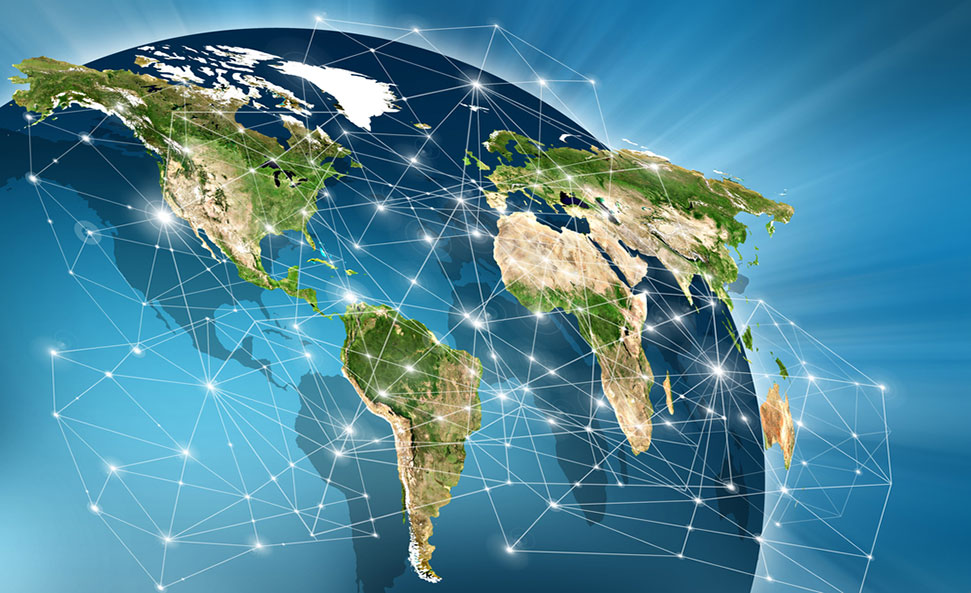
This chapter explains how the flow of data and information in today’s world is going beyond imagination. There is a flow of information everywhere, and will dislocate anything that comes in its way. If the people are not equipped to take advantage of the situation and use the data to grow from their current situations, they will fall behind while the rest of the world moves on. Being static is a boring and redundant option. The world belongs to those who are rapidly becoming more and more dynamic. Dynamic stability is what the society needs today and a country that cannot make itself so, will find itself facing a major crisis.

One example of a country willing to make the necessary changes to ensure its poorest citizens had access to the Internet to change their lives, is India. Over 75% of the population lives on a daily income of less than $2 and one major challenge was how to come up with a device that they could afford and simultaneously give themselves an undeniable connection to the Internet. It was then, that the team assigned to find a solution to this problem, came up with the Aakash Tablet. This tablet was available at a very low price and could connect to the Internet and download educational files as well as allow users tow watch YouTube videos. If one moves farther into the remote areas of the world, one will notice, the huge change that these developments are bringing about in the lives of those who once felt they had no hope.
How can the world of finance and human connectivity remain unaffected by these gigantic leaps?! With seamless connectivity, the financial markets all over the world are now deeply interconnected with each other. However, this has also made them more inter-dependent as well. The actions of one country is bound to affect the financial markets of the rest of the world as well. Your actions not only make you answerable to your fellow countrymen, but to the rest of the world.
The world is also witnessing human connectivity like never before. Politics may be creating barriers between people, but it is this technology, powered by the internet and the cloud, that has helped overcome these boundaries and extend the hand of friendship to any corner of the world. Someone might not have placed a foot outside his city, but it is possible for him to have friends residing in remote corners of the world too!
To keep up with the pace of globalization, each and every society needs to be able to handle the new, gigantic flow of information through it, meeting of strangers and exchange of ideas. Instead of rejecting anything new and strange, the success of a society would depend on how quickly its members are able to look for the hidden potentials and adapt to the changing times. The constant flow of information, exchange of ideas and meeting of new people has made it very easy to create new ideas and accept them. While a new idea or information could take years getting used to in the earlier days, now it can easily be accepted and adopted by the people.
The chapter ends by reminding the readers that globalization can be used for useful as well as harmful purposes. It can get accumulated in the hands of the powerful companies where it might get negatively used, however, in the right hands, it can be used for the overall progress of the society as a whole and at the individual level as well.
While physical technologies are developing, social technologies, which help us cope with these physical changes, are not developing at the same pace, leaving us to feel frazzled. Humans need to open up and integrate their minds and ideas and accept new ones if they wish to continue keeping up with the pace of globalization, to ensure their creativity doesn’t get extinguished.
Chapter 6
While the rapid development of technology is making life easier, if left unsupervised, it can have distress climatic and environmental impact. Recently, the hottest place on Earth, somewhere in the Gulf region, recorded a temperature of 115 degrees Fahrenheit, the actual feel, because of high humidity was a whipping 163 degrees Fahrenheit. This is just the beginning of the severe climatic changes that the world will be witnessing if these rapid technological developments are not supervised to control their negative side-effects.
Only technology cannot to be (directly) blamed. Unsupervised human activity, which does not pause to reflect on the subsequences, have led to several global problems like deforestation, pollution of air and more. Global warming has reached dangerous levels, which threaten to disrupt the planet We want to ignore these problems, and it’s only a little time more before we will find ourselves answerable to Mother Nature.
Several incidents are happening, all over the world, that are just reminding us how alarming the situation is becoming. Be it the melting of the snow in Greenland that has no industrial activity of its own, to begin with, but is suffering the negative impact of urbanization talking place in other developing and developed countries, or untimely rainfalls happening in many countries.
Several damaging events have started happening, and their frequency is only on the rise now, and these calamities cause billions of dollars to the governments as well. With the pace of development going up, the number of such disasters are following the same trend.
Another problem Friedman discusses about is the growing population that only seems to be getting more difficult to control day by day. Growing population means creating more need for food, land, and jobs, all of which are under increasing pressure from the existing population anyway.
To top it all, child marriages are yet to be brought to an end ins several remote places across the world. One can only imagine the stress that the planet will be under, when more and more people are moving to the urban areas, installing air conditioners and refrigerators and buying more cars to satisfy their desires that will only cause more pollution and damage.
It is further argued that in some places, like Europe, the mortality rates and fertility have gone down. However, on the other side, there are places where the mortality rates may have gone down, but the fertility rates haven’t, and these are the areas that pose more threat regarding the growing problem of population explosion.
Towards, the end, The Rain Room has been mentioned that was set up in 2015 at Los Angeles County Museum of Art. The room was a unique mixture of art, technology, and nature. It could accommodate up to seven people in it. What mad this room unique is that while technology helped create rain, using sensors, the rain would stop around any person in the room creating a dry spot on top of him. However, if the number of people exceeded a specific limit, there would be no rain at all.
This is a unique depiction of what the world is currently facing. The population has grown exponentially, and so has mankind’s uncontrolled harmful activities like deforestation and pollution. Just like too many people in The Rain Room would lead to no rain at all, too many humans on Earth would cause severe damages and would be the cause for the occurrence of several unnatural events.
Chapter 7
In this chapter, the readers are given a small glimpse into how rapidly technological developments is now replacing human skills. It is true that the changes are happening way too damn fast. Many people all over the world are now getting tired of facing challenges from technology that was actually suppose to help them in the first place. And many are also wondering whether the society is well equipped with the systems and models to keep pace with the speed at which such developments are happening.
Machines are now not only making humans in the professional world redundant with their artificial intelligence but also making several sportsmen, who have spent many years honing their skills, face the heat.

In fact, in a recent interview, the Dutch chess champion, Jan Hein Donner mentioned that he’d bring a hammer with himself to the competition in which he was about expected to compete with an IBM machine named Deep Blue.
The author explains how he himself has witnessed several changes being introduced in the world of journalism and agrees that the rate at which these changes are being introduced and implemented is getting faster and faster. Initially, when he started out, writing articles was a tedious job in which journalists worked without spell check and other facilities that are taken for granted in today’s world.
It was up to them to write, check and re-write and keep doing so until and unless they were satisfied with their work before submitting it.
However, now one has to do is carry his phone for an interview that records his information for him, and he can then go about easily finishing his work using all the latest software and technology that help ensure he is submitting articles that are nothing less than the best.
Technology is developing at such a rapid pace that the typewriter, that was so important to him at the start of his career is now a redundant stationery object that might be bought only for the fact that it now looks antique.
The discussion now moves over to the fact that humans need to adapt themselves to the pace at which the changes in technology and globalization are happening. There is no other choice that they have. Many are feeling helpless in such a scenario, where they feel that they are flowing away in the fast currents of the river that technology has now become. In such a situation humans have to ensure that they innovate their homes, communities, workplaces and politics so that they can adapt to this increasing acceleration.
Social technologies will have to be re-imagined and re-innovated as the physical technologies will not slowing down anytime soon. Humans must identify the areas in which they can perform better than machines and better with machines and work in those areas tirelessly to keep up.
The chapter ends by saying that the book will further describe several steps that must be taken in the five areas – offices, politics, geopolitics, ethics, and communities – so that the societies and their respective members are more well-equipped to keep up with the speed of technological development.
Chapter 8
It is true that machines have now replaced several humans in the job market. However, this does not mean that machines can perform all kinds of jobs. This will only happen if humans don’t make the necessary innovations and developments in educational institutions, workplaces, and the societies.
The chapter goes on to describe how there was a time when the average American could go for a 9-5 job, five days a week and manage to give his loved ones a decent lifestyle enough to keep them happy.
However, those times have now gone. being average in our skills or even at our jobs, will not get us anywhere, be it at an individual level or even as a whole. Times have changed drastically, and people, as well as organizations, have to fight harder, think harder and adapt quicker if they wish to survive this new tide that innovation is bringing along with itself.
Earlier, people could easily find jobs once they graduated. However, now they need to employ themselves and have to keep learning everyday in order to stay up-to-date with all the changes that are happening around the world.
The society and its members need to develop a dynamic stability are survival is important. And survival is very important.
For every job that is available, there are a million people applying for it, as having access to more knowledge and honing skills is no longer a privilege that only a few can enjoy. The pressure is mounting on everyone – small scale and large scale.
In today’s world, one can only grow when one has the necessary knowledge, skills, know-how and experience. While knowledge and skills may be available at an equal level, opportunities and the wealth needed to develop them, for further growth of mankind and society, may not be so equally distributed.
One has to redefine the relationships between the governments and the citizens, employers, and workers and the students and educational institutions, if we want to give everyone, equal opportunities to develop and hone their skills and talents.
A closer look at the labor market is needed to understand the situation. It is true that machines have removed several human beings from their work, but this is not 100% true. This is because while machines have made some tasks mechanical, they have created more jobs in other fields, giving people a chance in these new areas. To understand it better, just have a closer look at the garment industry.
Initially, people only had a few pairs of clothes that were completely man-made and were quite pricey. However, thanks to technology and development, several machines were the introduced that did male it possible to manufacture clothes faster and at a lower price as well. This pushed up the demand for clothes and new jobs in the world of designing, printing and dyeing were created that created jobs for thousands and millions of people.
It is not necessary that machines have taken away everything from humans; the need for excellent skills in humans have now become more important. People now need to develop strong fundamentals in writing, reading, creative thinking, programing, and continuous learning habits to ensure that machines don’t make them obsolete.
One way to reach this stage is to convert artificial intelligence into intelligent assistants. In other words, humans must now be able to use the artificial intelligence to gain more knowledge, sharpen their skills and equip themselves for lifelong learning, so that they can make themselves irreplaceable and simultaneously act and think faster.
There are a few misconceptions that are prevalent in the world today. The first one is the fact that you need to be a graduate to get a good job. Surprisingly many jobs can be yours if you just have a basic high school qualification.
The second one is that anyone can get into these entry-level jobs. It might should bonkers to you, but there are certain basic qualifications and skills that these jobs need that people are not even aware of. Not surprisingly, once they do get the job, holding onto it becomes difficult. Employers are flooded with job applications from people who have no clue what they are applying for and most of them lack the basic skills needed for these jobs.
LearUp.com is a website that was created to handle the problems. Members can understand their job scenarios out here and engage in different activities like developing the needed skills to getting ideas about solving different problems at the workplace and prepare for the interviews as well.

Not having a degree should not stop you from getting the job is you are capable of doing it well. This is where the idea of Intelligent Algorithms comes into the picture. They are online sites that help people portray their skills and get in touch with mentors and companies that are looking out for dedicated professionals like them.
Several people, just in America, have the skills, but fall behind in finding a good job just because they did not have the financial resources needed to get a degree. In today’s world, where skills are more important than anything, this should no longer be a problem. And thanks to intelligent algorithms, when you have the skills to have a specific job, you have equal chances of getting it as much as person who holds a degree does.
Chapter 9
This chapter is all about reforming the geo-politics all around the world. The world is now caught up between the fast spreading chaos in different parts of the world and the growing importance of bringing about a control in the existing scenario. Most of this responsibility falls on the shoulders of strong and powerful nations like the United States of America, who have in the past, reminded the world of her capability to manage the strengths and weaknesses of different countries, especially during the Cold War.
Several new countries came into existence after the First and Second World Wars, and most of these countries didn’t have the necessary resources to develop themselves, yet, they survived, because, in that era, one could get by, by just being average. The two main superpowers, namely America and the Soviet Union, were willing to supply necessary resources to most of these new countries to gain more allies. Thus, in spite of being almost empty on the inside, many of them made it through simply because they had a powerful country backing them and feeding their inefficient governments.
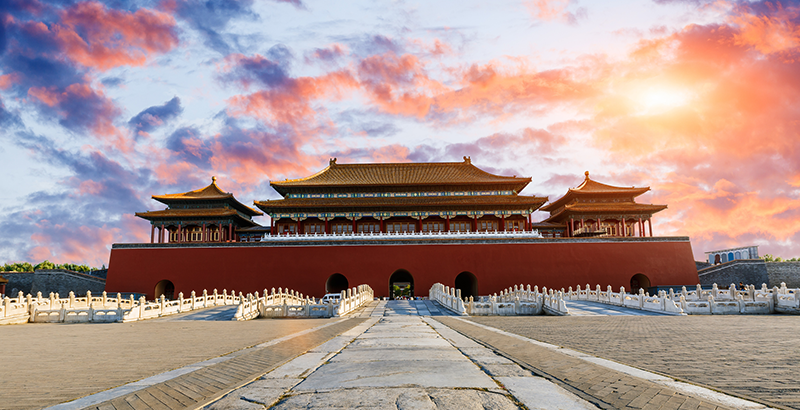
However, that time has ultimately arrived, where a nation, or even a human being, cannot piggyback on the success or support of another nation or human being, respectively. Several huge changes have taken place throughout the world, with some important ones being the severe slowdown in the growth that China was facing and the fall in the prices of oil. Now, there were several nations that were riding high just because of the huge oil reserves that they had. After oil prices went downwards, these countries were left scrambling for themselves and so were the smaller nations that were supported by them. Similarly, the slowdown in the growth of China has effected the growth of several other developing nations. Now that most of the nations have had a reality check, times are getting tougher with the advent of other global problems like global warming that is further adding to the growing pile pf problems that such countries are already facing. The chapter goes on to elucidate the situation by mentioning the political and economic problems prevalent in countries like Madagascar and Syria.
There is a further explanation of how globalization and climatic problems are creating more difficulties for these vulnerable countries that have those who are hungry for power and those who love creating chaos. The Internet is empowering both these groups. These weak nations, no longer have the support of the superpowers that they once had and they would be wise to know that are no such future possibilities of getting help from them either. Now they are on their own. They need to develop that habit of life-long learning among the citizens, get the necessary infrastructure and catch up with the speed of innovation if they don’t want to be wiped out by the huge wave of technological progress.

The worse part is that people who love chaos and turmoil, don’t need a team or an army to go about disrupting peace. The Internet has everything that they need to carry out their harmful and useless missions, and no nation can cut the Internet out if it wants to grow. So every nation, strong or weak, rich or poor, has to give access to the good as well as the bad side of the Internet. There is nothing much that can be done in this case. It only takes one person to kill many, the need of having a group is long gone now.
Even the categories looked at in assessing how powerful a specific country is, is no longer as simple as it once was. To determine the strength of a country in the 21st Century, one needs to take into account the physical aspects like the army men and nuclear power sources, but along with that, factors like innovation pace and the management of geopolitics and several other factors that now cannot be overlooked.
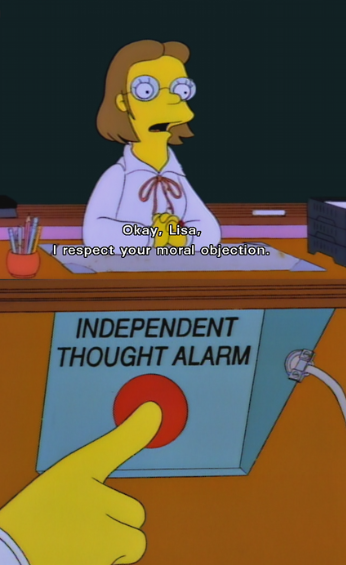
Education, eventually emerges as the need of the hour right now where people are taught to think for themselves and not get brainwashed by the hogwash that some extremists are trying to brainwash them with. A society that invests in the education of its members, is building up a strong front when it comes to successfully adapting to the new changes and questioning and leaving the redundant ones. And this is something that world desperately needs to keep up with the growing acceleration of technological development.
In the end, America must remember that several nations look up to her as a friend who will rescue them in times of trouble and help build them up. Many of them are now living with hopes of heading off to America to get a better life for themselves as well. American has, time and again, come to help the weak, and there can be no other time more important than this. At the same time, America must realize that it cannot go about treating these countries recklessly, but help them raise themselves from the ashes and start afresh.
Chapter 10
We are heading into the future at a pace that was never imagined and we are not well prepared for it. The idea to survive this change, the strength, and adaptability needed to outlive this change is missing.
Initially, we thought the most important for us was to pause and reflect once in a while to reflect on certain aspects of our lives. The political parties are in a desperate need to do so; yet they don’t realize it.
With the changing times, one must remember that it is not the strongest or the cleverest species that will survive, but the most adaptable one. With the combined changes in globalization, technological development and climatic change, the need to understand this has never been greater.

The problem here is that while the political parties of weak countries are facing severe challenges, those of stronger countries like the United Kingdom and the United States is vulnerable to cracks as well. Recent events such as Britain’s decision to leave the European Union have created vast holes that the political parties have to handle along with the need to cope with the pace of acceleration of technological development, global warming and globalization.
Political parties need to realize that the more important agendas are equipping the people to deal with such changes, the pace of these changes and simultaneously, keep innovation in order to keep up.
One of the best mentors that these political parties can look up to for inspiration is Mother Nature, herself, who has been handling these climatic changes for over a billion years. It is true that man has forgotten about her while getting busy with technological development and globalization, but it is high time he tries to re-connect with her.
To gain inspiration from her, just travel to the desert to notice how, in extremely harsh and unendurable conditions, plants and animals have evolved in order to survive. Mother Nature believes in evolving and mutating according to the new opportunities that come along. In fact, not only that, but these changes are even tested, and if not suitable, are modified to survive. Mother Nature is extremely flexible, and understanding and that is what we need to learn at this moment if we want to survive the huge changes created by us.
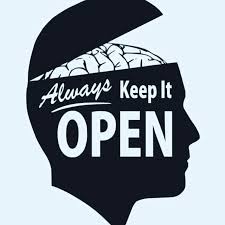
In order to survive today, society needs to quickly adapt to changing social, political, cultural, physical and spiritual environments. The chapter describes that there are five special ways that need to be focused on in order to achieve our goals for survival –
1. The need to openly accept new ideas and principles,
2. To be more than willing to adapt to changing biodiversity,
3. To understand that both personal and future problems must be dealt with a sense of ownership and at an individual level,
4. To understand and remember that a good society has healthy networks of ecosystems that might be living by themselves, but need each other to survive
5. To approach these political problems with an open, progressive and accepting mind.
We need our societies to swallow up some of that unnecessary pride, accept that we were wrong at some points and picked up and move on without wasting time, instead of being dogmatic and insisting that we were right. It will not only make us waste our time, but will also be more harmful to us. If the society is too egoistical, it needs to reframe its mindset and then follow the path to progression that is also filled with change.
Coming to the second point, whenever there is a change in the society, there will be someone who will adapt to it and manage to survive if not thrive. Every society has its one cultural, religious and ideological differences.
However, only that society that can take all these differences and instead of allowing it to create deep cracks, uses it to come up with new opinions and points of views and move forward, only such societies will thrive in the current and future times.
When it comes to ownership of problems, it is stated, that when someone takes ownership of their problems, they come up with ideas that actually help them solve the problem. A society in which the members refuse to take up ownership of the problems that the society, as a whole, is facing, such a society will find it very difficult to cope with changing times.
When something is yours, or creates the ownership feeling, you tend to be more protective and diligent about it and that is the idea that is being emphasized out here.
Just like seen in Nature, even Politics needs the balancing of the individuals and ecosystems if it wants to change in a progressive way. In the earlier times, it was important to opt for the centralization of power to ensure that the common public looked up to them. Even managing local and domestic problems were easier and not at the current complicated levels.
However, now, societies and the political parties must realize that the need of the hour is decentralization of power and not centralization. The governments have now become too complicated, and it takes too long for them to complete all the necessary formalities before they can get down to handling the problem.
Last but not the least, the political parties must be prepared to give up their old ways of bringing about development like tax deductions, less regulations and so on. These ideas are not going to help us survive the huge wave of change that is already upon us. A more open and a progressive ideology are what the political parties all over the world need if they are to achieve their ultimate objective of achieving a happier and healthy world.
Chapter 11
The chapter deals with the moral awakening in the human mind. God, for most of us, is the symbol of good deeds, acts, and rewards when we do good. However, these same God is known for punishing us when we do bad deeds, and they hit us eventually.
While we believe that God is everywhere, we can wonder whether he exists in cyberspace. The right way to answer this would be that humans create the presence of God by their own acts and deeds. By doing good, making the right decisions on the Internet and staying away from harmful or illegal activities, we are morally, validating the existence of God in cyberspace.
After all, He exists in everything that is true and good. However, by opting to indulge in harmful or immoral activities on the Internet, we are basically ruling out the option of His existence in cyberspace. Today, what we are all looking for is a moral innovation. And it is high time we did that for good our present and future generations.
Men and women, in the twenty-first century have immense power and influential capabilities. It is up to us how we choose to use that power.
If chosen to carry out good acts, it results in helping us achieve what we set out to achieve in the first place – a solution to our problems, both at an individual and the system as a whole.
Indeed, technology has become an extremely powerful source, but, there are a few things that shouldn’t have been handed over to them in the first place. The chapter sites examples of ads airing before an ISIS video on YouTube and cab fares, peaking during terrorist attacks, just because it was the rush hour. The algorithms don’t have a moral thinking; it’s a power that is solely given to the humans.
Humans must realize that they cannot let technology take over everything, although it looks like doing so will make life easier, because doing that will lead to severe moral questions that will raise doubts on mankind as a whole.
The chapter ends by reminding us that it is not too late. The power is still in our hands, even though it seems to be slipping with each and every day. Humans still have the power to create a different future for the next generation and the ones coming after them.
It is up to us to create healthy, wholesome and innovative societies that can give technology the freedom that it needs to develop, but at the same time, keep a strong leash on it, lest it becomes a tiger out of control. It gives us a peek in to what the next part of the book holds for the readers, and that is the dedication and patience needed in building strong and healthy communities.
Chapter 12
While many of us might want to leave the technology race, and find a nice old wood cabin to live in the middle of the forest, it isn’t a great idea.
One option is to try and run away from it, but the author reminds us that would be a foolish choice to make. We cannot run away from it. The best way is for us to try and make our way into the eye of that storm which is the most stable area within the hurricane. It moves with it, yet maintains the stability – something that the society, as a whole, is currently yearning for.
In today’s world where there is fear, hatred, and judgmental personalities, it creates a deep need for being “protected, respected and connected”, something that is creating a healthy community provides. Just like mentioned earlier, being adaptable to different situations is of utmost importance and a healthy community, in which the people trust each other, will bring about this much-needed ability – the ability to adapt.

When trust is present, people are willing to listen more, understand new things and also, step out of their comfort zones. A healthy community provides a much-needed relief and also empowers its members. Outsiders feel connected and wanted, doubters become confident, and the world moves towards adapting itself to any change that nature and technological developments may throw up in its way.
Along with creating more employment opportunities and improving productivity, the members of the society have to lend forward a helping hand to everybody to survive the storm that they are caught up in.
The author explains about his time as a child. He recounts an experience where he was lucky to be brought up in a time when the people believed in fighting together and fought for what they believed in.
They knew that by standing together and helping each other out, they would make a good society, if not perfect, one their children could learn from and move on to better things in life. He explains by revealing an incident in which someone was so upset at being wrongfully cut off on the road that she honked!
That was the tiny extent of rage that they had, especially in the peaceful town of Minnesota. This reminds us that we need to be more patient and listen with the intention of understanding. Listening with the intention of replying back is just wasting our time because we are denying ourselves the chance to know something different, have a look at a different opinion.
Several examples from the author’s early days have been cited that prove to us time, and again that “pluralism” in a society doesn’t come easily. It takes time, patience and perseverance.
Several incidents have been mentioned in which discrimination against a minority group, like the Jews, were not taken lightly, forcing those who tried to create a rift, to step back and finally, it was a society that did not care about the ethnicity or skin tone of its residents. You cannot build love and trust overnight, but it is not impossible either.
It is true that when was growing up in Minnesota, everything was not perfect. There were several problems that existed then, like gender discrimination, not accepting homosexuality and racism as well. It is a good thing that the world is currently, waking up to these problems and is addressing them and taking steps to control them.
But the positive attitude of the residents in the neighborhood created a deep sense of belief within the author that when the members of the society really try hard and put in their best efforts, there is nothing that cannot be fixed or repaired. People need to change their mentality and that, in itself, is a big step on the path to achieving good things for the world.
Earlier, it was easy for people to connect with each other and understand each other, to trust each other and spread the love. However, with the rapidly increasing pace of technological developments, these things cannot be done easily. People will have to take more effort to do these basic things, like reach out to each other. It is indeed ironic, that technology has made it possible for one to cover long distances and travel to different countries, yet has made it difficult for the people to reach out to their next door neighbors.
And this is the exact reason why it is all the more important to build healthy communities that take in diversity easily. This is not an impossible task. With the right leadership, a society can achieve this as well.
Chapter 13
This chapter is all about the happiness one feels when one returns home. America is a powerful nation and, in spite of having its own internal problems, has managed to carve a society that makes everyone, including the outsiders, feel at home. In yet another incident, the author met a Somalian one day who, without even asking, mentioned that America felt like home.
The world may have its problem creators, who feel that there is nothing better than creating chaos and upheaval. However, the world also has great countries like America, that has for time immemorial, welcomed the uninvited, gave them food and shelter and made them feel at home.
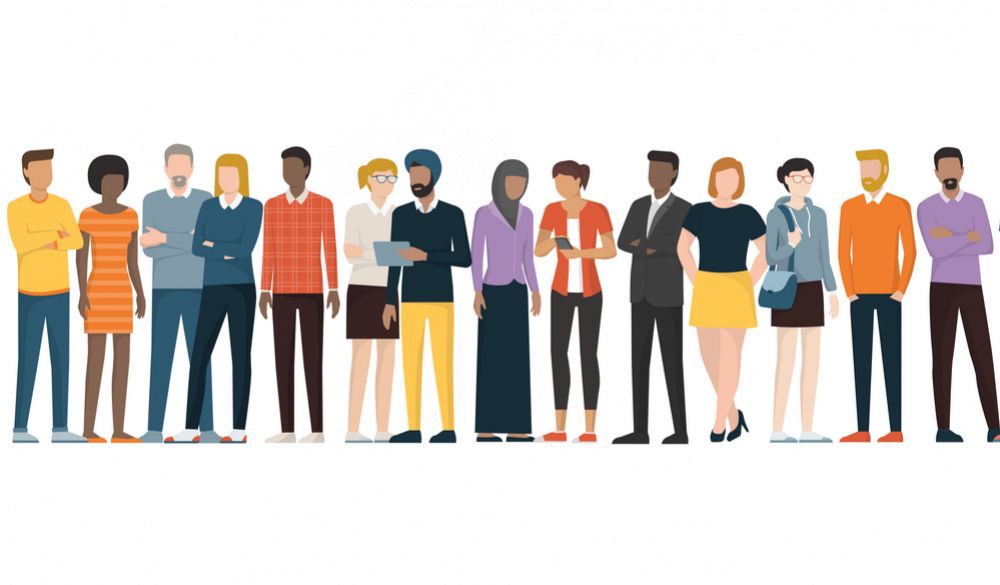
On thinking a lot about what is it that makes a society a home where the evil gets minimized, if not eliminated, and the good flourishes, the credit can be given to the politicians. They might fight and argue with each other on several trivial and important matters. However, at one point they are all willing to compromise to create a society that is a representation of happiness and healthy and intelligent living.
When there is a tie breaker between the corporations and the politicians, at the end of the day, both have made certain sacrifices and compromises, for the betterment of the society. However, if one is more observant, such trends are mainly visible in the rural areas and not in the metropolitan cities, where competition is tough, and people do anything but trust each other.
There may be many who have thrown in the towel, but there are still many, who are willing to try and work on things to fix what is broken and heal those who have been hurt. However, just like every relationship, improving the relationship between the government and the public will be a two-way street as well.
While the people have to trust the government with their future and money, the government has to do whatever it can to show them that it deserves their trust. It has to prove to the public, time and again, that it views their trust as sacred and will take extreme care that this relationship, that is built on trust, is protected.
For this, the government must reach out to the people in every nook and corner. It is not possible for one group to take care of everything and every problem. Even in small areas, with a negligible population, the government must set up municipalities and neighborhood associations that will take care of day-to-day problems.
This will also go a long way in changing the general perception of the public out there – that the government is out to just ruin an already ruined situation.
An example that we can learn from is a project that is known as the Itasca Project. It is made up of volunteers who meet once a week to discuss the problems.
When the discussion starts at the dining table, everyone knows that in spite of all the problems and differences of opinions the members of the group may have, nobody will be leaving the table until and unless solutions to the problems have been found and agreed upon.

The group consists of highly respectable men so that one can expect a strong clash of ego and political ideologies, but all that pride and arrogance has to be left at the door as one enters the room for the meeting to begin. This group is known as a project because it only meets when an important issue crops up that needs to be solved.
And the volunteers work very hard, in spite of the fact that the group does not follow the basic protocols, that organizations are expected to follow, like having a board of directors or having a fancy website. The task is simple – address the problems, discuss the possible solutions, face the different opinions that are bound to come up, but nobody leaves until a solution has been found.
In the end, one needs to understand that trust cannot magically be created. It takes a lot of time, not to mention effort. Since most of the governments of the world now have a tarnished image, it will take the effort to win back the trust of the public, but rest assured, it is possible, as long as everyone is working to improve the society.
Chapter 14
The closing chapter is the behind-the-scene aspect of this book. The readers are given a glimpse of how the ideas that form this book didn’t just pop into the author’s head one fine afternoon. Instead, it has taken several decades of the author’s life, right from his journey as a child in the friendly city of Minnesota to the famous journalist that he has now become.
Being a journalist gave him the opportunity to travel the world, be it the Gulf region or even the powerful Washington D.C. Traveling the world gave him a glimpse of the different principles and ideologies, practices and beliefs, the different problems plaguing the different nations and the measures being taken by the governments to curb them. It helped him get a broader perspective of the problems and a better understanding of ways that will help find a solution.
He left for the Middle East after becoming a journalist, as a positive American, looking forward to covering the major events of the world and bringing it to the public. What he noticed was that in the Middle East, the strong were getting stronger and the weak didn’t mind getting weaker. The idea of creating a more equal society was far away from their thoughts. Coming back to America after thirteen years after witnessing this huge amount of negativity should have helped him feel better, but, to his dismay, he realized that the Government of his country was also going the same way.
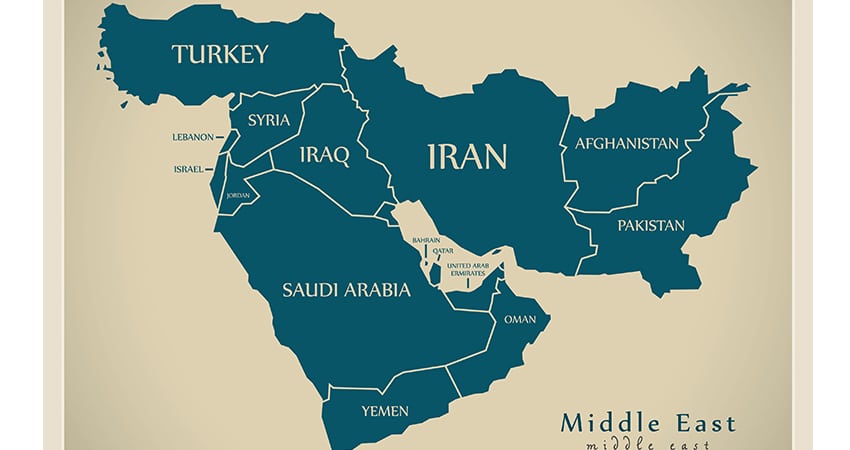
With growing diversity and cultural differences, it is education that will be binding everyone together. It is true that America has proved, in its own several ways, that it is still a country that can be looked up to. While it has done a great deal in helping the world, it cannot counter attack the fact that technological development is creating a rise to a major problem – unemployment!
But this is just one big problem that is mentioned. Several such problems will come up, one after another, and it is then that a comprehensive educational system, coupled with strong leadership skills will help save the sinking boat that our society has now become.
The time to start is not sometime in the future, but now. Given the levels of climatic change and other environmental damage that we are in, we have the exact time needed to save ourselves and not a second more. But that effort has to be made. Moreover, the readers are reminded that the human touch is going to be the most needed ingredient in helping achieve what we are looking for.

The chapter further discusses, how in this world of unimaginable connectivity, people are feeling more lonely than ever before. The importance of physical contact and communication can never be underestimated. It is more important than you think. You need it to connect, no, really connect, build trust and belief and establish progressive practices. With so many tools and equipment, developing technology and greater connectivity, humans will definitely find the solutions to the several problems that are now staring at us, right in the face.
The book finally ends, reminding the readers that the modern thinking might have changed, yet, we must remain deeply entrenched in our core values of love and trust as that is what healthy communities are based upon. We can remain extremely traditional in our values, yet progressive in our thinking, beliefs, and practices and still be innovative.


